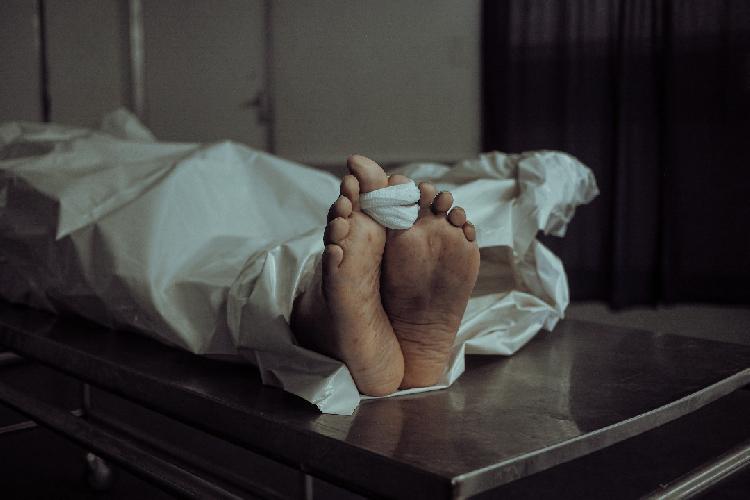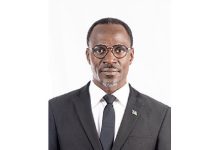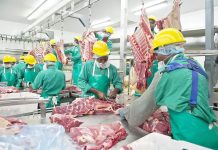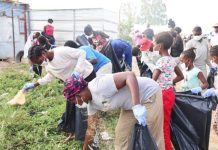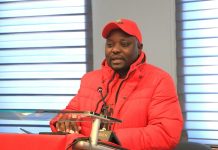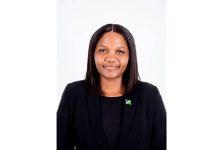Africa-Press – Namibia. AFTER working for the Windhoek Police Mortuary for about 25 years, deputy commissioner Jooste Mbandeka has learnt one important lesson: to respect the living.
“By seeing dead people, I have developed huge respect for human beings. I have learnt how important human beings are, regardless of background or class,” he says.
Mbandeka is the head of the Forensic Pathology Division under the Namibian Police Forensic Science Institute.
He says he is used to the uncomfortable looks on people’s faces when he tells them what he does for a living.
JUST ANOTHER DAY AT THE OFFICE
It is a cold Friday afternoon and the deputy commissioner juggles welcoming The Namibian at an empty reception area and answering his subordinates’ questions. He delegates the questions to the other officers in uniform and then gives us his full attention.
We follow him to a viewing room, where our tour of the mortuary begins.
The room is about two metres away from two more viewing rooms, where glass separates viewers and bodies.
“The viewing rooms are for families to identify their loved ones,” Mbandeka says.
The mortuary is divided into two sections, one for the Namibian Police, and one for the Ministry of Health and Social Services.
It has three zones: red, green and yellow.
Mbandeka says the green zone is where the building’s offices are, while the yellow zone indicates a “light-risk area”.
THROUGH DARK CORRIDORS
He walks us through cold, dark corridors into the yellow zone and shows us fridges where bodies are stored in white bags.
Voices can be heard in the background, while the cooler system keeps buzzing.
We walk past three coffins waiting to be collected.
The names of the deceased are attached to each coffin.
“Those are Covid bodies,” he says.
On any given day, the mortuary can accommodate 186 bodies, excluding additional containers, but is able to accommodate 200 bodies if the need arises, he says.
“We can still put bodies on trolleys if need be. The challenge comes in when we have reached the 200-body capacity,” Mbandeka says.
At the back of the mortuary are two large containers listed as Covid-19 containers.
The containers, sponsored by Trustco and a fishing company, are outside as it cannot be accommodated inside the building.
Not far from that are more containers.
“As time goes by, we move decomposed bodies outside. They are usually the unclaimed bodies,” Mbandeka says.
THE AUTOPSY ROOM
He leads us to the autopsy room, accompanied by health ministry officials and another police commissioner.
The room needs some fixing, he says.
Inside, a message is written on a small blackboard: “Embrace the death of your friends and rejoice. For they are better off than the living.”
The room is spacious and filled with medical apparatuses and tools to examine bodies and determine their cause of death.
“First, the body is brought in from a scene or from the hospital. We register it with a unique number, and then a briefing is done with medical officers who will conduct the autopsy. Depending on the number of cases, each doctor is allocated a case and an assistant,” Mbandeka says.
He says the doctor on duty normally starts with an external examination.
Mbandeka, who started out as an autopsy assistant, says it is important not to disturb bodies in any way before they are viewed.
“After photographs and recordings are done, instruments and water are placed on the dissecting tray. The assistant dissects the body, after which the doctor comes in and examines the organs. Once the organs are removed, they are separately dissected,” he says.
Mortuary employees are sometimes required to testify in court after working on a body, he says.
“Sometimes, practitioners have to go to court to explain how they identified a body if there is an unknown body in one of the police files. In some cases you may find an unknown body, so we take their fingerprints and compare them with data from [the ministry of] home affairs,” Mbandeka says.
The Forensic Pathology Unit has 91 employees countrywide, of whom 11 are stationed in Windhoek.
COVID-19
According to Mbandeka, staff members have been fearing having to handle Covid-19 bodies.
“Everyone was terrified, especially in the beginning. I am surprised that no one expressed the desire to leave,” he says.
He says the time when the third Covid-19 wave peaked from May to July was challenging.
“Even though the hospital mortuary was handling more bodies, the police mortuary was also handling many bodies. Many deaths outside hospital facilities were collected by the police, and some of my colleagues told me that out of seven bodies collected by the police, only one was not a Covid-19 death,” he says.
He says a team from the health ministry collects the bodies of those who have died of Covid-19 and handles them.
Emilia Konstantin, an infection prevention control coordinator in the health ministry at the mortuary, praises the Covid-19 team, as well as members of the Namibian Defence Force, who assisted during the peak of the third wave of infections.
She says the most daunting task during that period was to collect data.
“Death notification papers would be lying in the files, so we had to find a way to collect data properly,” she says.
Konstantin says the donation of the two containers assisted them as storage capacity was an issue during this time.
“When I came here, bodies were lying on the floor, and there was hardly space to move. Luckily we got the two containers that really helped us a lot,” she says.
In June, The Namibian reported there were more than 200 unclaimed bodies at the state mortuary.
Among them were 180 infants, who were cremated with the assistance of the City of Windhoek.
National police spokesperson deputy commissioner Kauna Shikwambi says she encourages families to collect the bodies of their loved ones.
“This way, we avoid the overcrowding of mortuaries and the long process of arranging pauper burials,” she says.
Mbandeka says thus far no mortuary staff member has tested positive as a result of handling a Covid-19 body.

